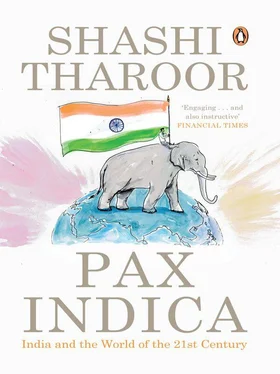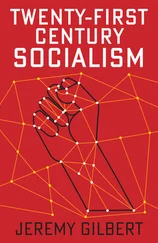So is my earlier focus on the definition of the Indian national interest. This would require grappling, for instance, with the question of whether India sees itself firmly in the camp of liberal democracies besieged by Islamist terrorism and critical of Chinese authoritarianism, and led, for all intents and purposes, by the United States. In a posthumously published essay, K. Subrahmanyam argued:
The real question about the future world order is whether it is to be democratic and pluralistic, or dominated by one-party oligarchies that prioritise social harmony over individual rights. If the US remains the world’s predominant power, and China is second, India will be the swing power. It will therefore have three options: partnering with the US and other pluralistic, secular and democratic countries; joining hands with China at the risk of betraying the values of its Constitution and freedom struggle; and remaining both politically and ideologically non-aligned, even if against its own ideals.
He left no doubt about which choice he would make: ‘The emerging Indo-US partnership,’ he argued, ‘is not about containing China. It is about defending Indian values from the challenges of both one-party rule and jehadism, and realising a future in which poverty and illiteracy are alleviated.’
This is by no means a unanimously held view in New Delhi: if anything, the Indian strategic community tends to the almost consensual position that, despite common social and political systems with other democracies, and the fact that it has usually been more secure when surrounded by elected democracies in its own region, India should not actively promote democracy around the world. The Indian aversion to preaching our own virtues to the world is a reasonable one, but India has in fact been actively engaged in democracy promotion, having been for many years the largest single donor to the United Nations’ Democracy Fund. But as always, India does not want to see itself pre-committed to any bloc, even one of democracies, for that would infringe upon its freedom of decision-making; New Delhi would prefer, as always, to judge each issue for itself, on a case-by-case basis. The old obsession with strategic autonomy remains. The question is how to make that autonomy a springboard rather than a straitjacket.
A similar question now arises: how should New Delhi balance its energy needs and its political values in its dealings with, say, Myanmar or Iran, where one set of interests (the need for energy security) contends with another (the upholding of democratic values in the former case and the maintenance of partnerships with major allies like the United States, in the latter)? Should the essential internal priority of doing whatever it takes to eliminate acute poverty at home prevail over all other considerations?
A sweeping ‘yes’ is in fact not enough to cover all possible situations, because a nation, by definition, has more than one way of placing itself in the world and more than one point of interface with other major powers. Even if it were to take a hard-headed realpolitik position on national self-interests as China does, and refuse to be swayed by democratic scruple when direct and tangible economic benefits are at stake, it still has to weigh the consequences of the choices it makes on other relationships — for example, deciding whether it is willing to antagonize the United States as the price to pay for maintaining energy supplies from Iran.
At the same time, much of what we are in the process of accomplishing at home — to pull our people out of poverty and to develop our nation — enables us to contribute to a better world. This is of value in itself, and it is also in our fundamental national interest. A world that is peaceful and prosperous, where trade is freer and universally agreed principles are observed, and in which democracy, the coexistence of civilizations and respect for human rights flourish, is a world of opportunity for India and for Indians to thrive.
If this century has, in the famous phrase, made the world safe for democracy, the next challenge is to make a world safe for diversity. It is in India’s interest to ensure that the world as a whole must reflect the idea that is already familiar to all Indians — that it shouldn’t matter what the colour of your skin is, the kind of food you eat, the sounds you make when you speak, the God you choose to worship (or not), so long as you want to play by the same rules as everybody else, and dream the same dreams. It is not essential in a democratic world to agree all the time, as long as we agree on the ground rules of how we will disagree. These are the global principles we must strive to uphold if we are to be able to continue to uphold them securely at home.
Because, as I have argued, the distinction between domestic and international is less and less meaningful in today’s world, when we think of foreign policy we must also think of its domestic implications. The ultimate purpose of any country’s foreign policy is to promote the security and well-being of its own citizens. We want a world that gives us the conditions of peace and security that will permit us to grow and flourish, safe from foreign depredations but open to external opportunities.
Whether global institutions adapt and revive will be determined by whether those in charge are capable of showing the necessary leadership. Right now many of us would suggest that there is a global governance deficit. Reversing it would require strong leadership in the international community by a number of powers, including the emerging ones. India is an obvious contender to provide some of that leadership.
In March 2012, the authors of a report entitled ‘Nonalignment 2.0’ put it well when they argued that ‘India must remain true to its aspiration of creating a new and alternative universality …. India already has enormous legitimacy because of the ideological legacies its nationalist movement bequeathed to it. But this legitimacy, once frittered away, cannot be easily recovered. India should aim not just at being powerful: it should set new standards for what the powerful must do.’
This is a huge challenge, and one to which India must rise. An analogy from another field is not encouraging; many would argue that India has not acquitted itself well when given the chance to have a global impact in one domain — that of the sport of cricket, where India accounts for more than 80 per cent of the game’s revenues and perhaps 90 per cent of its viewership, giving it an impact on the sport that no country can rival. According to Lawrence Booth, the editor of the ‘cricketers’ bible’, the Wisden Cricket Almanack , writing in its 2012 edition:
India have ended up with a special gift: the clout to shape an entire sport …. But too often their game appears driven by the self-interest of the few…. Other countries run the game along self-serving lines too; cricket’s boardrooms are not awash with altruism. But none wields [India’s] power, nor shares their responsibility. The disintegration of India’s feted batting line-up has coincided with the rise of a Twenty20-based nationalism, the growth of private marketeers and high-level conflicts of interest. It is a perfect storm. And the global game sits unsteadily in the eye. India, your sport needs you.
Clearly, international opinion does not believe that, in its domination of world cricket, India has set new standards for what the powerful must do. Broadening the analogy to global geopolitics, one could well say: India, your world needs you.
So India must play its due part in the stewardship of the global commons (including everything from the management of the Internet to the rules governing the exploitation of outer space). We can do it. India is turning increasingly outward as a result of our new economic profile on the global stage, our more dispersed interests around the world, and the reality that other countries, in our neighbourhood as well as in Africa, are looking to us for support and security. The ‘problems without passports’ that I have referred to need blueprints without borders — blueprints that require rules which India can contribute to making. The creation of global public goods is a new challenge, and it is one that a transforming India can rise to.
Читать дальше












